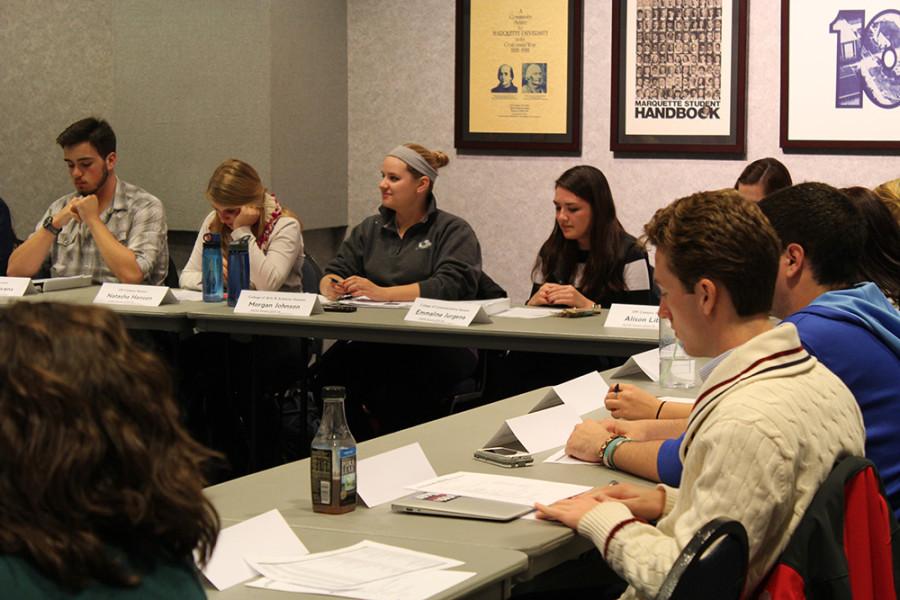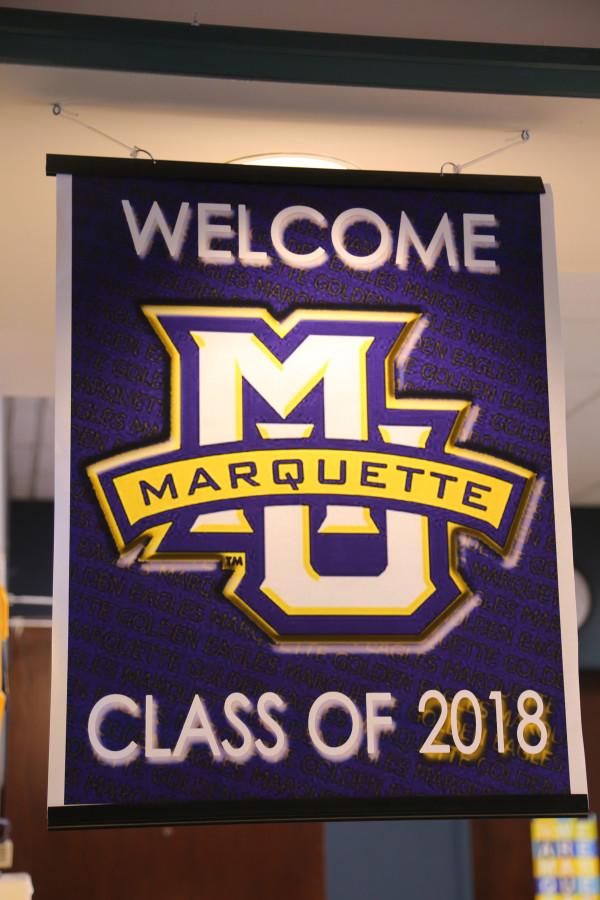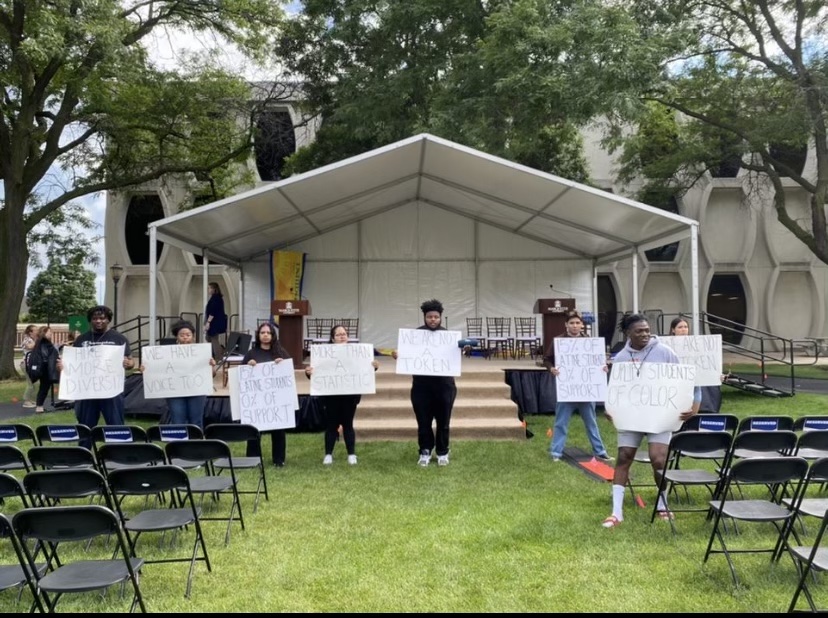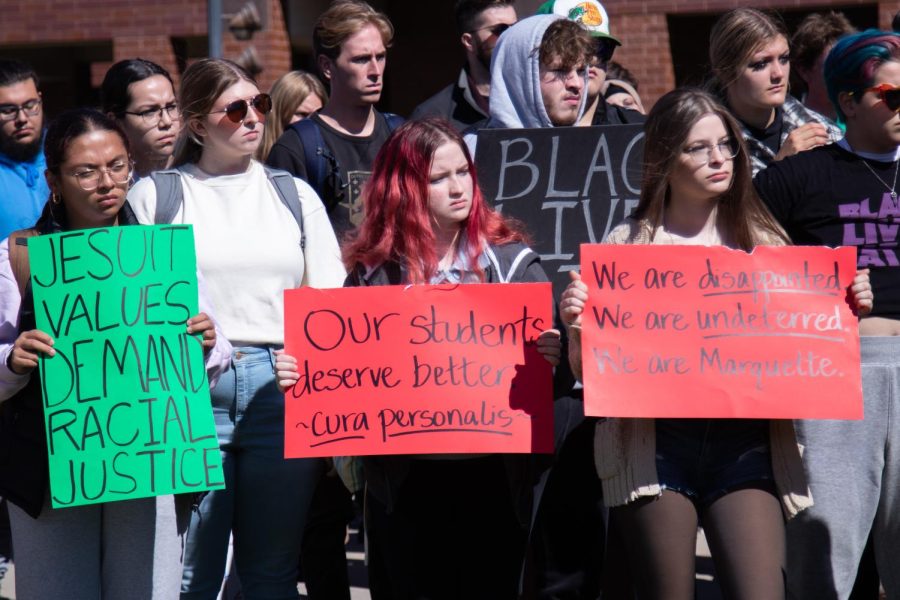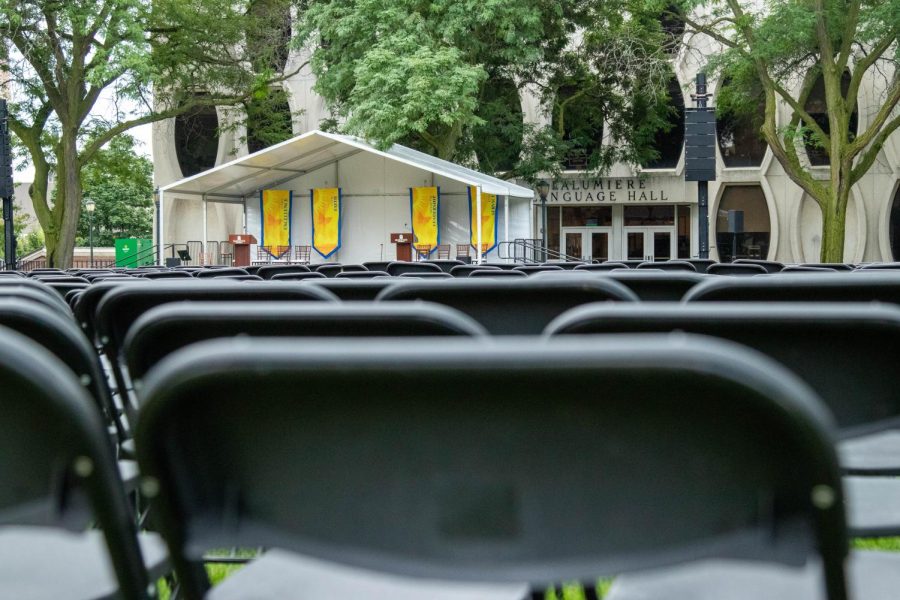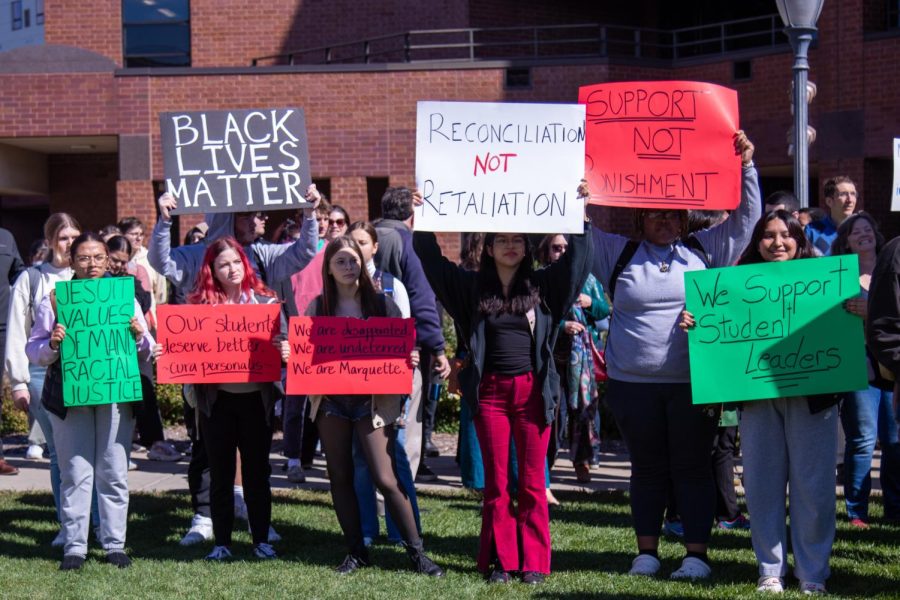Marquette’s taking a stand against cheating.
The new honor code developed by the Academic Integrity Steering Committee requires undergraduate students to complete an online tutorial and quiz on academic honesty before they can register for spring semester classes.
At New Student Convocation on Aug. 20, the freshman class recited the new honor pledge developed by the committee and endorsed by a unanimous vote in the MUSG Senate.
Gary Meyer, vice provost for undergraduate programs and teaching, conducted research that led to the development of the new code and presented his findings to MUSG in the spring. MUSG voted to endorse statements of obligations for students, instructors and researchers.
Kate Barelli, MUSG senator and a junior in the College of Health Sciences, wrote the legislation endorsing the committee’s initiative.
“It was more of an endorsement rather than an initiation on our part, but we as a governing student body decided that this is something that we felt students would agree upon and would be an important issue,” Barelli said.
Both Barelli and MUSG Legislative Vice President Zack Wallace, junior in the College of Arts & Sciences, agreed that this honor code adds credibility to a Marquette degree because it shows that the university places high standards on what it means to have academic integrity.
“From the way it was presented to us, we decided it would be a benefit for all students,” Wallace said.
Meyer, Barelli and Wallace all used the word “proactive” in describing this new approach to academic integrity.
“The idea behind this is that it’s a good thing for campus,” said Meyer. “Academic integrity is paramount and adds to the value of a degree. Employers and people of the community will know this integrity to be part of our DNA here at Marquette University.”
The three major things that the committee worked on, Meyer said, were an honor code, educational material and a centralized system of management.
“Reciting the honor pledge at convocation began to develop for the freshman class this culture of academic integrity and awareness that we have an honor code,” said Meyer. “This new policy is not just something coming from administration; it obliges students to act in ways of integrity.”
As for educational material, all students are required to complete an online tutorial and quiz by Oct. 24. Each student must answer 17 out of 20 questions correctly and can take the quiz as many times as necessary.
“There’s a lot of moving parts right now, but the most important thing is that students complete the tutorial by the deadline,” Meyer said.
Still a work in progress is the centralized system of managing and adjudicating cases of academic misconduct.
“Before, it was up to the specific colleges to adjudicate cases of cheating and plagiarism,” Meyer said. “The problem with that was that it required many people to understand the rules and regulations, and the consequences for the same infraction could be different across the university.”
Meyer said he is currently recruiting students and faculty for an honor council. Right now, the honor council has 10 members from the faculties of all the colleges, but is not yet functioning.

